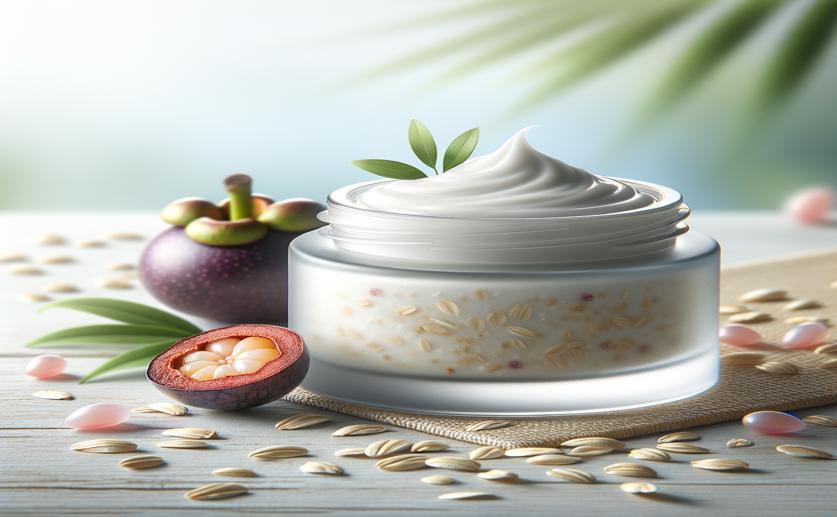
Skincare Product with Oat Sap and Mangosteen Extract Reduces Acne Symptoms
Greg Howard
26th July, 2024

Image Source: Natural Science News, 2024
Key Findings
- The study, conducted by Pierre Fabre Dermo-Cosmétique, tested the anti-inflammatory effects of Rhealba® oat sap and Garcinia mangostana extract on acne
- In lab tests, these extracts significantly reduced inflammation-causing proteins produced by acne bacteria
- In a clinical trial with 54 acne patients, the product containing these extracts reduced acne lesions and improved skin appearance over two months
References
Main Study
1) A dermocosmetic product containing the sap of oat plantlets and Garcinia mangostana extract improves the clinical signs of acne.
Published 25th July, 2024
https://doi.org/10.1111/jdv.19876
Related Studies
2) The prevalence of acne in adults 20 years and older.
Journal: Journal of the American Academy of Dermatology, Issue: Vol 58, Issue 1, Jan 2008
3) Acne vulgaris.
4) The Pathogenesis and Management of Acne-Induced Post-inflammatory Hyperpigmentation.



 16th April, 2024 | Jim Crocker
16th April, 2024 | Jim Crocker